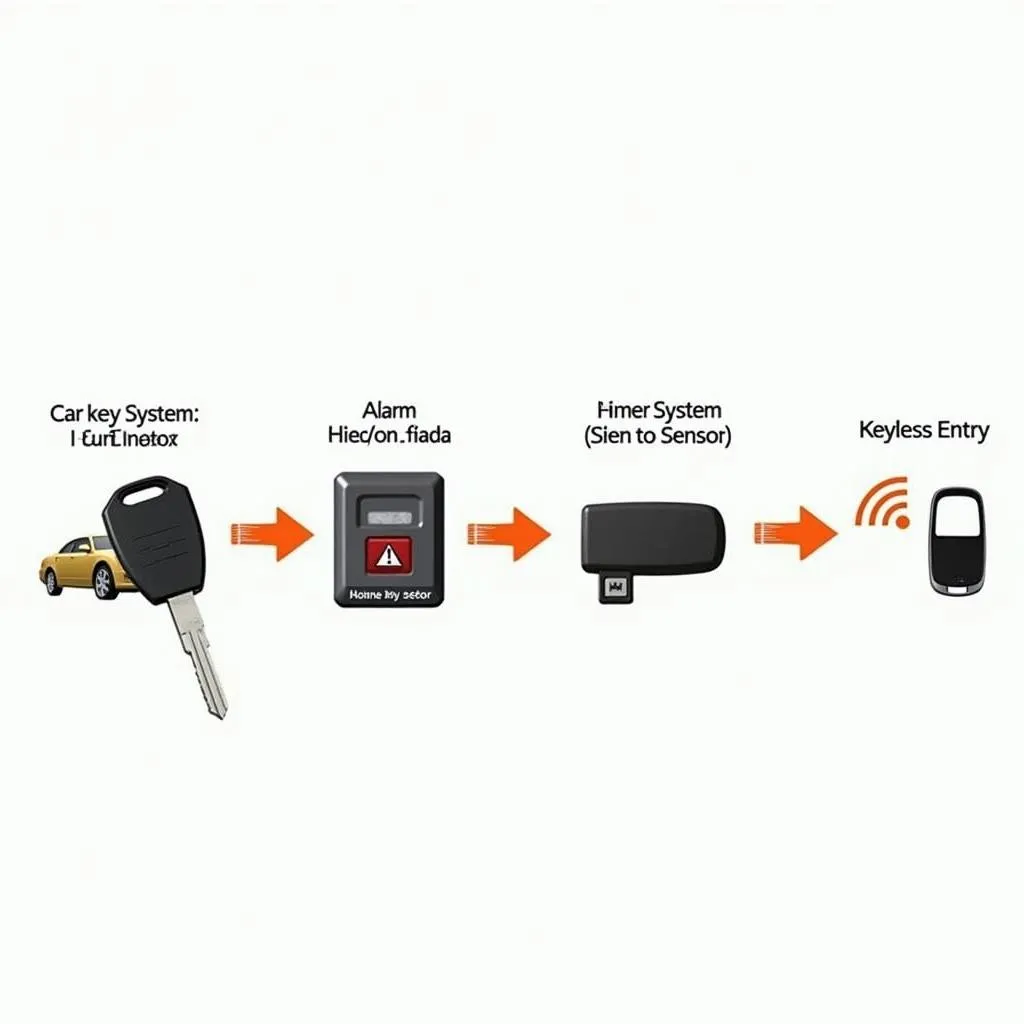Want to enjoy wireless audio streaming in your car without replacing your entire radio system? Converting your existing car radio to Bluetooth is a cost-effective solution that brings modern convenience to your older vehicle. This guide provides expert advice on achieving Bluetooth functionality, covering various methods, including aftermarket adapters, FM transmitters, and even cassette tape adapters. We’ll explore the pros and cons of each option, helping you choose the best fit for your car and budget.
Understanding Your Options for Bluetooth Car Integration
There are several ways to convert your car radio to Bluetooth, each with its own set of advantages and disadvantages. Choosing the right method depends on your car’s existing setup, your technical skills, and your budget.
Using Bluetooth Adapters for Your Car Stereo
Bluetooth adapters are a popular and relatively straightforward way to add Bluetooth functionality to your car’s audio system. These adapters connect to your car radio’s auxiliary input (AUX) or cassette deck. Once connected, they pair with your smartphone, allowing you to stream music wirelessly.
- Pros: Relatively inexpensive, easy to install, good sound quality.
- Cons: Requires an AUX input or cassette deck, may require charging.
Some Bluetooth adapters also offer hands-free calling capabilities, incorporating a built-in microphone. This feature enhances safety and convenience, allowing you to take calls without handling your phone.
Utilizing FM Transmitters for Wireless Audio
FM transmitters offer a wireless solution for cars without an AUX input. These devices transmit audio signals over an FM frequency, which you then tune your car radio to receive. They plug into your car’s 12V power outlet (cigarette lighter) for power.
- Pros: No AUX input required, works with most car radios.
- Cons: Sound quality can be affected by interference, requires finding a clear FM frequency.
While FM transmitters offer a convenient solution, the sound quality can sometimes be compromised by interference from other radio stations. This can result in static or distorted audio, especially in areas with a high density of radio signals.
Exploring Cassette Tape Adapters with Bluetooth Functionality
For older cars with cassette decks, Bluetooth cassette adapters are a viable option. These adapters resemble a regular cassette tape but contain a Bluetooth receiver. Inserting it into the cassette deck allows you to stream music wirelessly.
- Pros: Simple to use, relatively inexpensive.
- Cons: Sound quality can be lower than other options, cassette decks are becoming less common.
Choosing the Best Bluetooth Solution for Your Car
“Selecting the right Bluetooth solution hinges on your car’s existing features and your personal preferences,” says automotive electronics expert, David Miller. “Understanding your needs and budget will help you make the most informed decision.”
Which option is right for you? Consider the following factors:
- Existing car radio features: Do you have an AUX input, a cassette deck, or only a standard FM radio?
- Sound quality expectations: Are you looking for high-fidelity audio, or is basic sound quality sufficient?
- Budget: How much are you willing to spend on a Bluetooth solution?
- Technical skills: How comfortable are you with installing and configuring electronic devices?
Installing and Setting Up Your Chosen Bluetooth Device
Once you’ve chosen a Bluetooth solution, installation is generally straightforward. Most adapters come with clear instructions. However, if you’re uncomfortable with DIY installations, consider seeking professional help.
“While most installations are simple plug-and-play operations, consulting a professional can save you time and potential frustration,” advises Susan Chen, a certified automotive technician. “They can also help troubleshoot any unexpected issues.”
Troubleshooting Common Bluetooth Connection Issues
Occasionally, you may encounter problems connecting your Bluetooth device to your car stereo. Common issues include pairing difficulties, poor sound quality, or intermittent connection drops. Check your device’s manual for troubleshooting tips, or consult online forums for advice.
Conclusion: Enjoy Wireless Freedom in Your Car
Converting your car radio to Bluetooth is a simple and affordable upgrade that significantly enhances your driving experience. Whether you choose an adapter, FM transmitter, or cassette adapter, you can enjoy the convenience of wireless audio streaming and hands-free calling. By carefully considering your options and following the installation instructions, you can bring your car’s audio system into the 21st century.
FAQs
- Do all Bluetooth car adapters support hands-free calling? No, not all adapters support hands-free calling. Look for adapters that specifically mention this feature.
- Can I use a Bluetooth adapter with my factory car stereo? Yes, in most cases you can use a Bluetooth adapter with your factory car stereo, provided it has an AUX input or cassette deck.
- What is the best Bluetooth adapter for sound quality? Adapters that connect via AUX generally offer the best sound quality.
- How do I fix a Bluetooth adapter that keeps disconnecting? Check for interference, try moving the adapter closer to your phone, or consult the adapter’s manual for troubleshooting steps.
- Are FM transmitters legal? Yes, FM transmitters are generally legal, but be mindful of local regulations regarding broadcasting power.
- Can I use a Bluetooth cassette adapter with any cassette deck? Yes, Bluetooth cassette adapters are designed to work with most standard cassette decks.
- How do I pair my phone with a Bluetooth car adapter? Put the adapter in pairing mode and then search for available Bluetooth devices on your phone. Select the adapter from the list of available devices. You may need to enter a pairing code, which is usually “0000” or “1234”.

